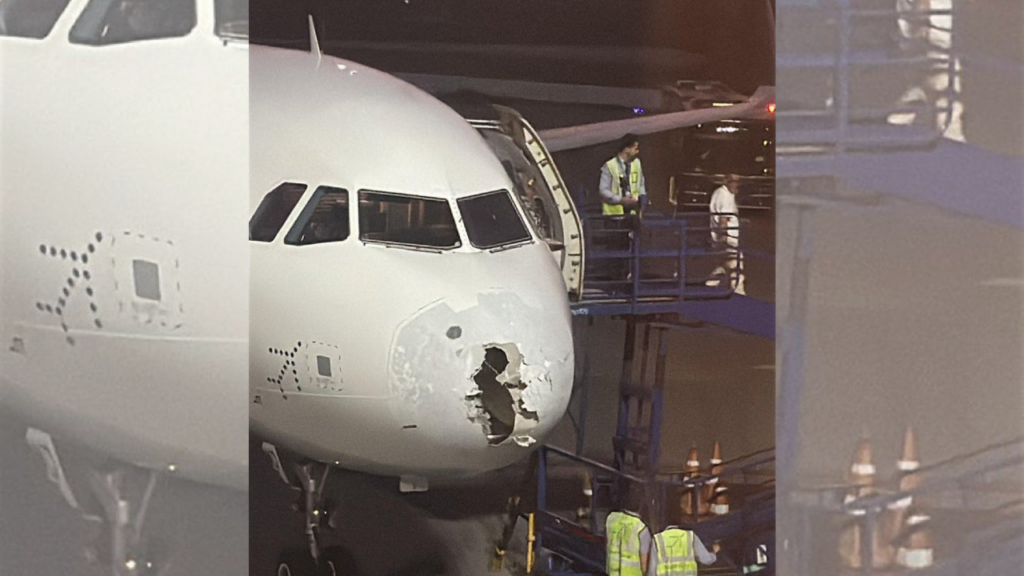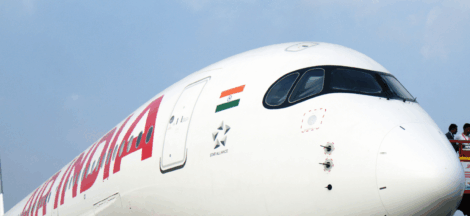A Delhi-to-Srinagar IndiGo flight carrying 227 passengers endured a harrowing ordeal on 21 May when it encountered a violent hailstorm mid-air. The pilot’s urgent plea to Lahore Air Traffic Control for temporary access to Pakistani airspace to evade the turbulence was denied, compelling the aircraft to navigate the severe weather within Indian airspace.
Flight 6E-2142, an Airbus A321, departed Delhi at 5:13 p.m. and, approximately 45 minutes into the journey, was struck by intense hail and lightning. The turbulence was so severe that passengers were heard screaming and praying as the aircraft shook violently. Viral videos captured the chaos, with overhead compartments opening and belongings scattering. Despite the extreme conditions, the pilot managed to land the aircraft safely at Srinagar Airport at 6:30 p.m. Post-landing inspections revealed significant damage to the aircraft’s nose, attributed to the hailstorm and a possible bird strike.
The pilot’s request to Lahore ATC was made solely on safety grounds, aiming to briefly enter Pakistani airspace to avoid the storm. However, the refusal by Lahore ATC forced the pilot to declare an emergency with Srinagar ATC and continue the flight through the hazardous conditions. This incident underscores the operational challenges and geopolitical sensitivities involved in cross-border airspace usage, even in emergent situations.
The geopolitical backdrop adds complexity to the incident. Following the Pahalgam terror attack in April, where 26 tourists were killed, India launched Operation Sindoor, targeting alleged terror camps in Pakistan. In retaliation, Pakistan closed its airspace to Indian carriers, affecting flight operations and leading to longer routes and increased fuel costs for Indian airlines. Although a ceasefire was agreed upon in early May, the airspace restrictions remain in place, reflecting ongoing tensions between the two nations.
The refusal by Lahore ATC to accommodate an emergency request raises questions about the adherence to international aviation protocols, which typically prioritise safety over political considerations. The incident has sparked discussions within the aviation community about the need for clear guidelines and cooperation between neighbouring countries to ensure passenger safety during emergencies.
Passengers aboard the flight, including members of the Trinamool Congress delegation, expressed their distress over the ordeal. Many praised the professionalism and composure of the flight crew, who managed to maintain order and ensure a safe landing despite the challenging circumstances.




 Harvard’s Global Student Programme Halted
Harvard’s Global Student Programme Halted 